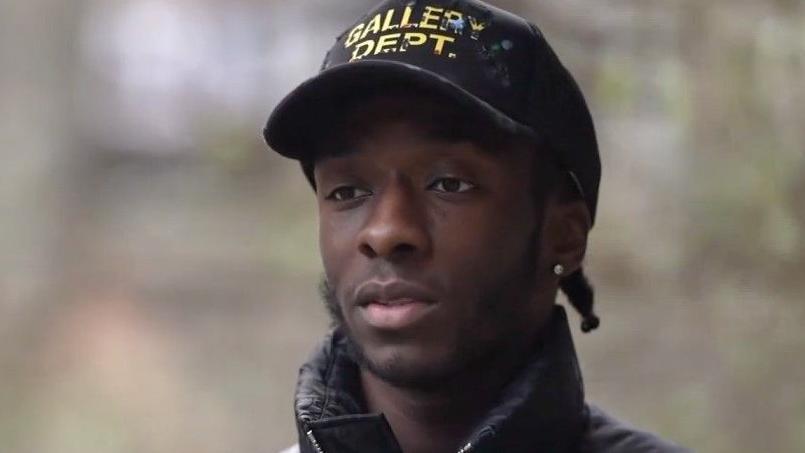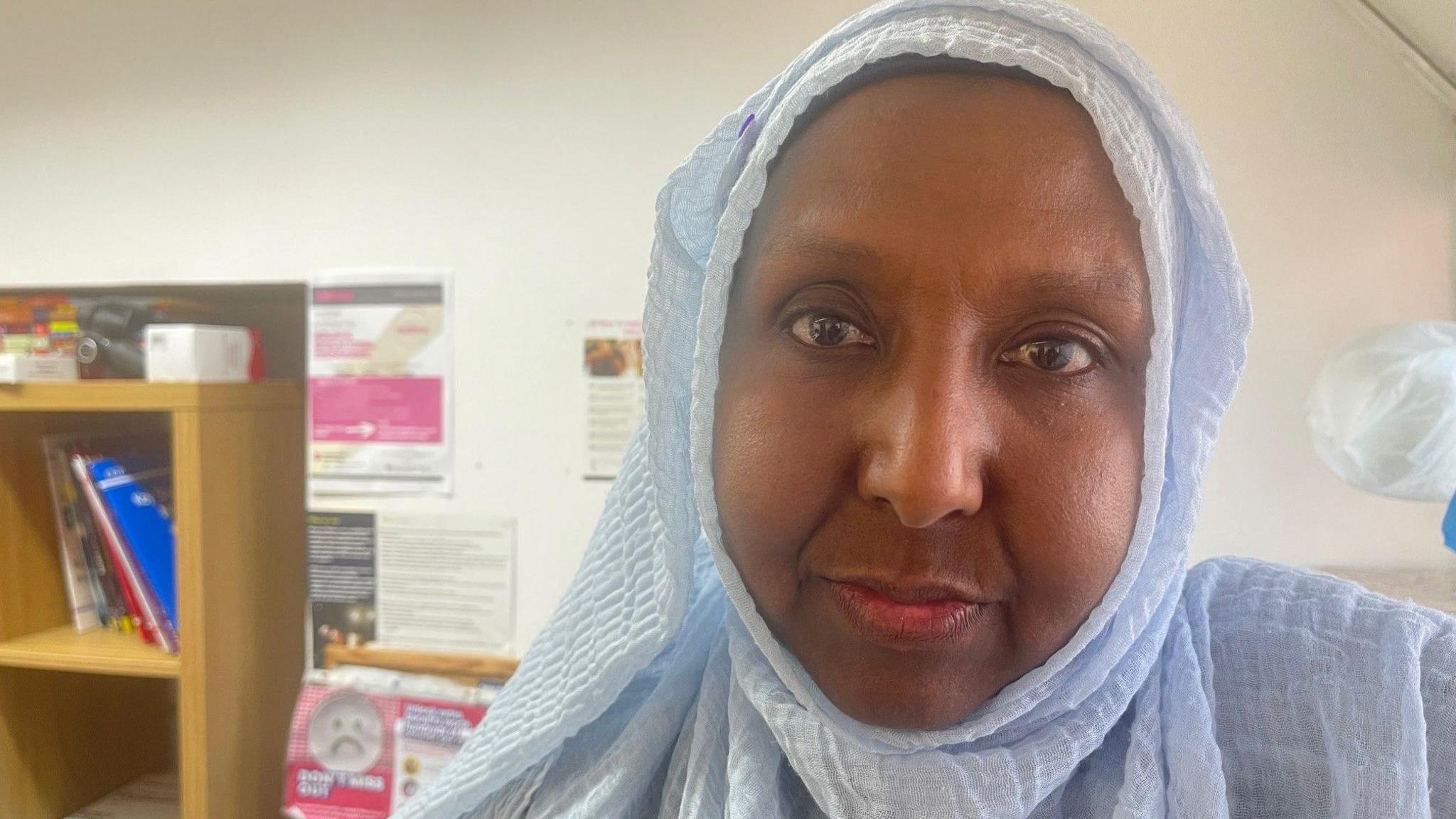Child violent crime suspects 'getting younger'
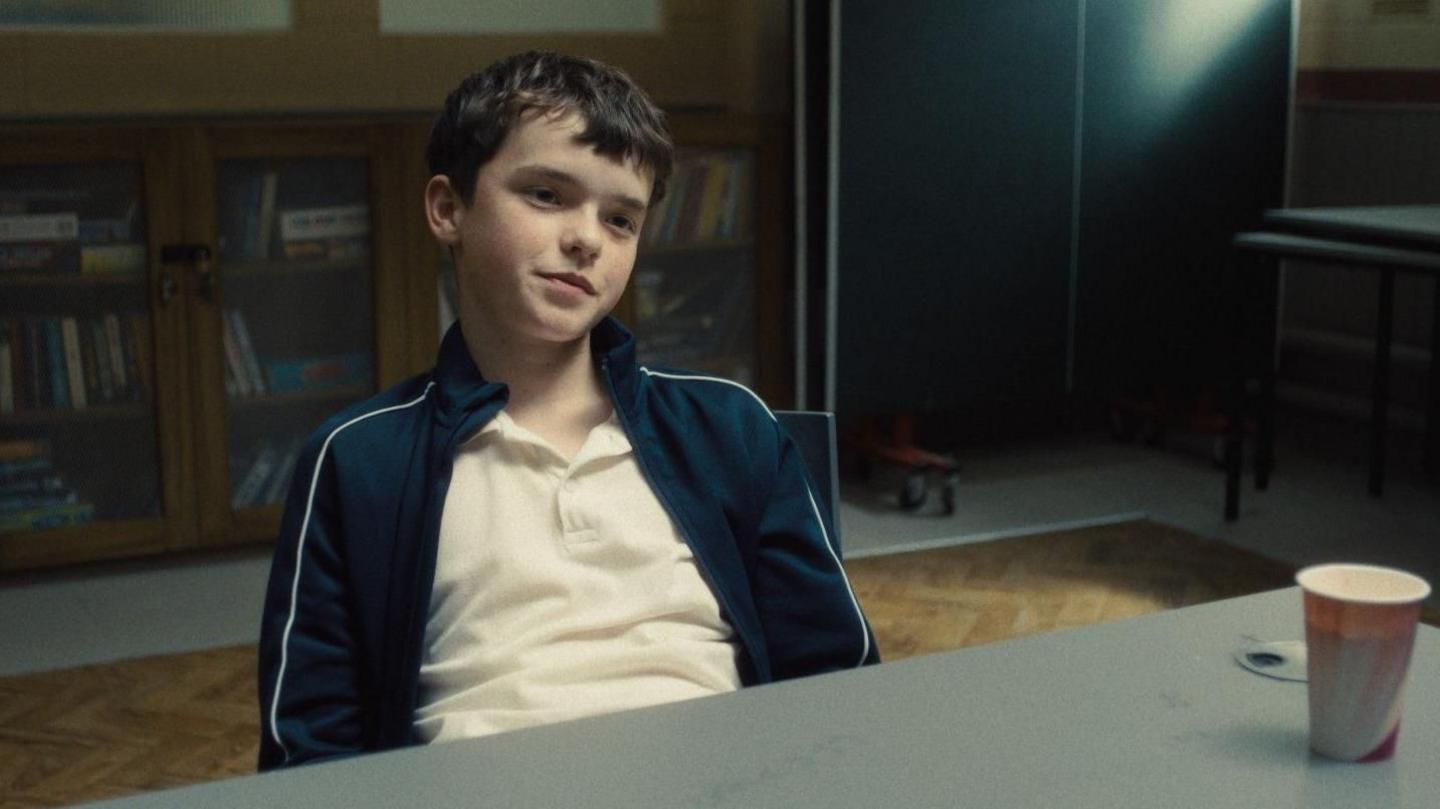
Netflix series Adolescence sparked a national conversation about the impact of social media on young people
- Published
An increasing proportion of children aged between 10 and 14 years old are suspected of committing violent crime in London, in comparison to other young people, a report has found.
According to Met Police figures, 7,512 children aged between 10 and 14 were suspected of violent crime, including knife offences, in 2023, a rise of 38% from 2020.
While this is below the 2019 figure, the report highlighted that those aged 10-14 made up a higher percentage of serious offences involving young people in 2023, compared to 2019.
Lib Peck, director of London's Violence Reduction Unit (VRU), which commissioned the study, described the findings as "disturbing".
The VRU was set up by London mayor Sadiq Khan in 2019 to try to tackle the underlying causes of violence.
The study, put together by crime and justice specialists Crest Advisory, analysed data between 2019 and 2023 to examine the impact and background of crime in London, and provide recommendations on how to respond to it.
The figures show that serious offences affecting under 25-year-olds initially fell during the pandemic, but increased in the years after.
In 2019, there were 56,734 serious offences involving those aged 24 and under, falling to 37,616 in 2021 and rising to 41,147 by 2023.
While in 2019, children aged 10-14 were involved in 15.9% of those offences, this had risen to 18.3% in 2023.
In comparison, for those aged 15-18 the proportion fell from 47.8% in 2019 to 43.5% in 2023, and for 19-25s it rose from 36.3% to 38.3% in the same time period.
Ms Peck said the report highlighted the importance of the VRU's work aimed at tackling school absences and exclusions, which were found to be key risk factors in children becoming involved in violence.
The study said the number of permanent exclusions in inner London had fallen over five years, while increasing nationally, but the number of suspensions had increased across both inner and outer London.
It also said that young people with special educational needs were disproportionately represented in the youth justice system.
In 2023, the VRU launched a three year, £3m project involving 70 primary schools across seven boroughs, offering targeted support to improve children's language and communication skills.
"It really directly helps support young people to address things like conflict by using words not fists," Ms Peck said.
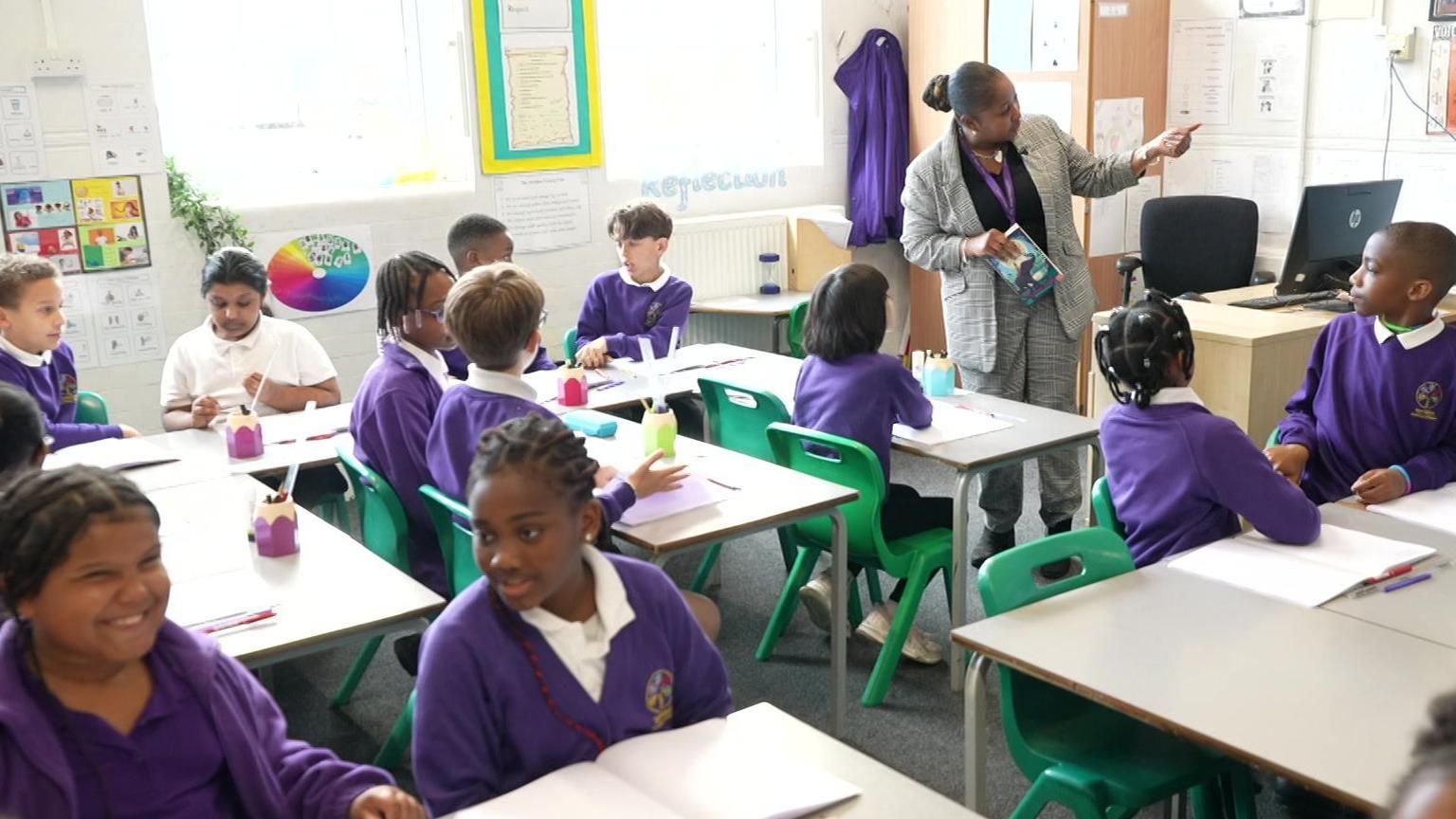
Teachers at Torridon primary school say they've seen an improvement in behaviour after receiving support from the VRU
Manda George, head teacher of Torridon primary in Catford, south-east London, said her school had used the funding to expand its support for children with speech language and communication needs through oracy lessons, as well as teaching children about relationships and conflict resolution.
She said teachers were still seeing the impact of the pandemic, which has left an increasing number of young children struggling with language skills.
"We can see straight away in nursery if a child needs something extra in terms of language and communication, and similarly a child with being able to talk about their emotions, or how they're feeling, as opposed to hitting out or lashing out."
Now in the second year of the programme, Ms George said the school had seen a huge improvement in behaviour.
"If children are able to resolve that conflict before they get angry, before they get upset, then it doesn't escalate to a point where we are having to intervene with things like suspensions and exclusions."
Sai Satyadeva, Torridon primary school's inclusion leader, said it was easy for children to become "lost or labelled" in secondary school and then disengage.
She said since the expansion of the oracy programme pupils were "better able to advocate for themselves" and were showing improvements in their behaviour and forming better relationships with their peers.
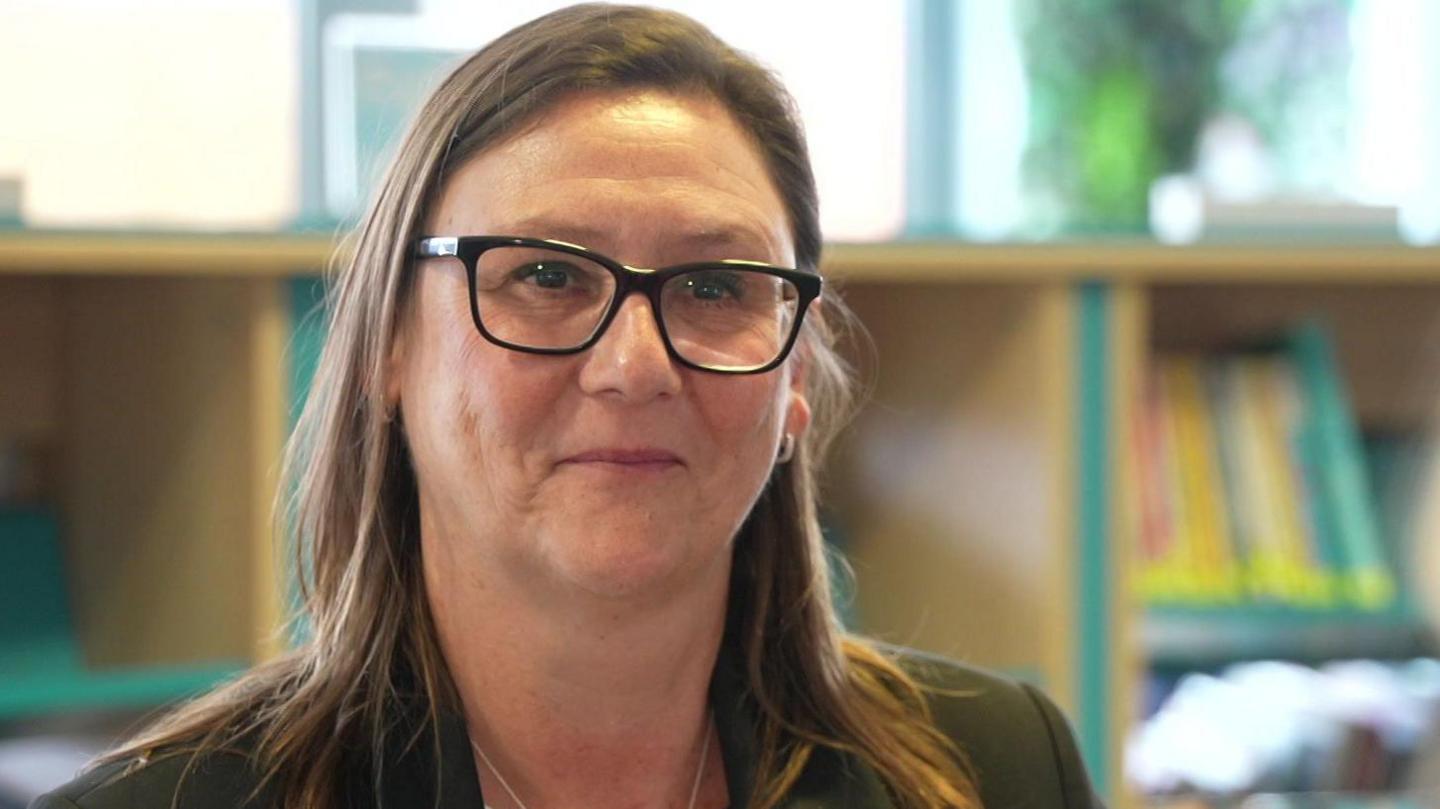
Manda George, head teacher of Torridon primary in Catford, said it was vital to give children support early, before they reach secondary age
When we visited the school, some of the older children were discussing a book they'd been reading, using a technique called Rally Robin, which Ms Satyadeva explained encouraged them to take turns, without one person dominating the conversation.
The children picked up from each other using phrases such as "I would like to build on" or "I would like to challenge" the ideas put forward by their classmates.
Ten-year-old Ashton said it gave them the ability to disagree with each other "but not in a rude way. We don't say, you're not correct, or shout out".
He told me his friends now used a similar technique in the playground to decide which games to play.
"If one person says how they feel, then the other person says how they feel, then you can figure out a way to resolve the argument," added his classmate, Madison, aged 10.
Eleven-year-old Isla said she liked this as it helped her to "see the other people's point of view".
"If you're in a large disagreement, we don't want it to get really physical" explained 10-year-old Ethan. "We talk about our feelings."
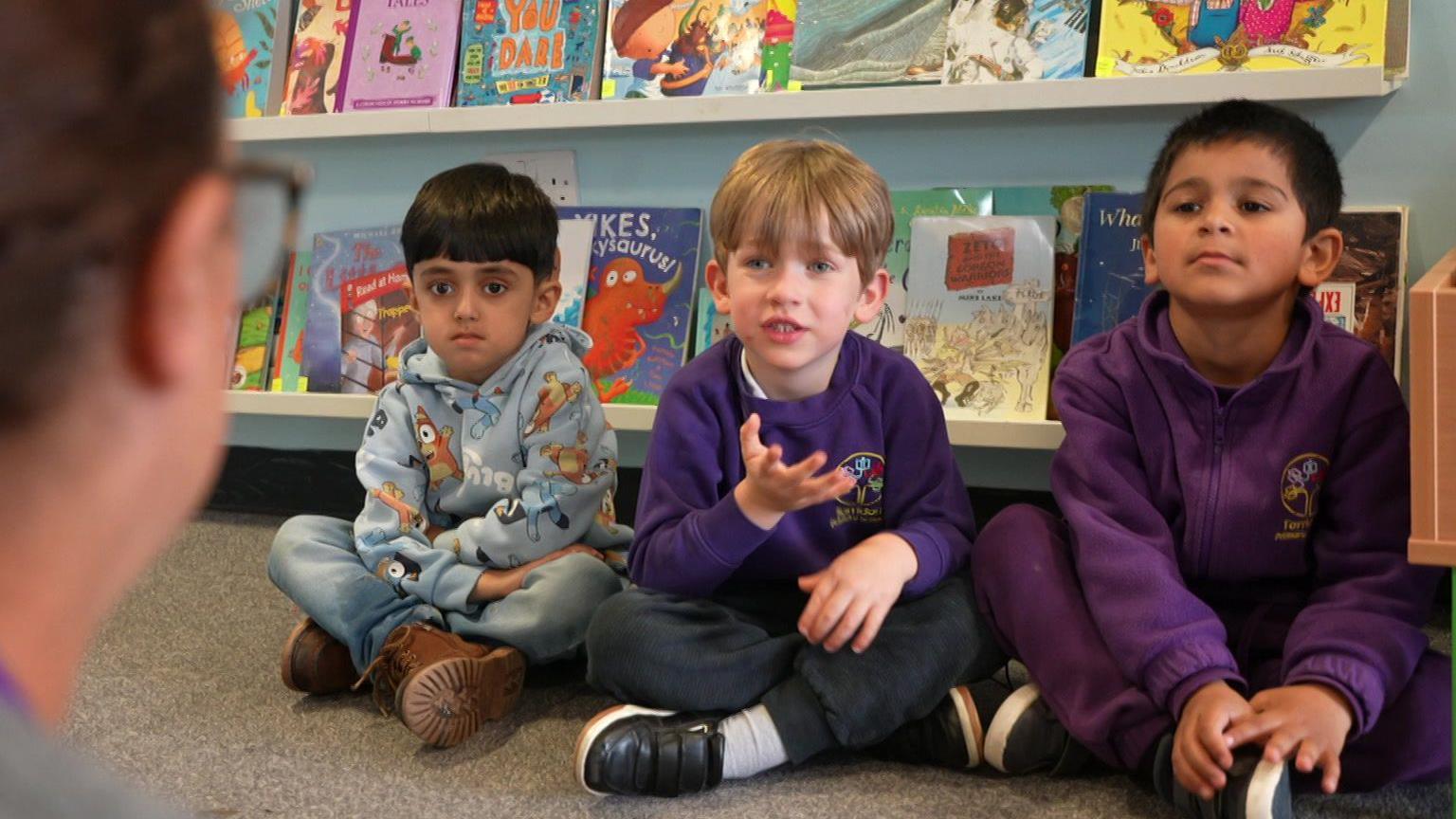
Younger children at Torridon primary are being given tailored support with their speech and language skills
Ms Peck insisted the results within the schools the VRU had been working with had been "remarkable".
"Ninety-six percent of young people who have got involved in these type of lessons narrowed the gap between their peers, and 81% narrowed it by more then 50%," she said.
But it will be some time before it's possible to evaluate whether such a programme can help lower the number of young people being stabbed on London's streets.
The report points out that, as the VRU was only created five years ago, it is difficult to measure how successful its public health approach has been, while the impact of the Covid-19 pandemic had made it "difficult to see key trends in crime data".
"I think we do have to acknowledge that last year, for the first time, we had the lowest level of murders for under 25 [year olds] for 23 years," Ms Peck said, when asked about the figures in the report.
However, she added that it "doesn't breed any complacency.
"It's something Londoners are concerned about, absolutely rightly so, and we see far too may young people get caught up in violence."
The report also recommended that the VRU should commission research into the exposure of children to online harm, including social media, as well as harmful relationships with peers and adults.
It follows the release of hit Netflix series Adolescence earlier this year which sparked a national conversation about the impact of social media on young people.
"It's important that we understand what is going on the virtual space and how that relates to physical violence," said Ms Peck.
The Metropolitan Police commissioner has repeatedly warned that knife crime could rise in London without more funding from the government, although following last week's Spending Review, the chancellor said she was confident that pledges on cutting crime and increasing police numbers can be kept.
"Everybody wants to feel safer," Ms Peck said, when asked if she was concerned about Sir Mark Rowley's comments.
"What we need to be doing is really investing in that prevention that stops young people getting engaged [in crime] and being exploited in the first place."
The school using language and communication to tackle serious crime
BBC London has visited the school in Catford to find out more
18 June 2025
But won't some people be sceptical about the link between funding oracy programmes for young children and preventing a young teenager from picking up a knife?
"I can appreciate that," said Ms Peck, "but it's entirely logical. We know the safest place for children is in school.
"One of the key factors of a young person being excluded, or being suspended, is very often because they're unable to articulate themselves very well, and that turns into bad behaviour."
Head teacher Manda George told me she can "absolutely" see the link between supporting speech and language skills for very young children and preventing older ones becoming involved in violence.
"The earlier we can support children the better. By the time they're in secondary school it's too late."
Listen to the best of BBC Radio London on Sounds and follow BBC London on Facebook, external, X, external and Instagram, external. Send your story ideas to hello.bbclondon@bbc.co.uk, external
Related topics
- Published25 September 2024
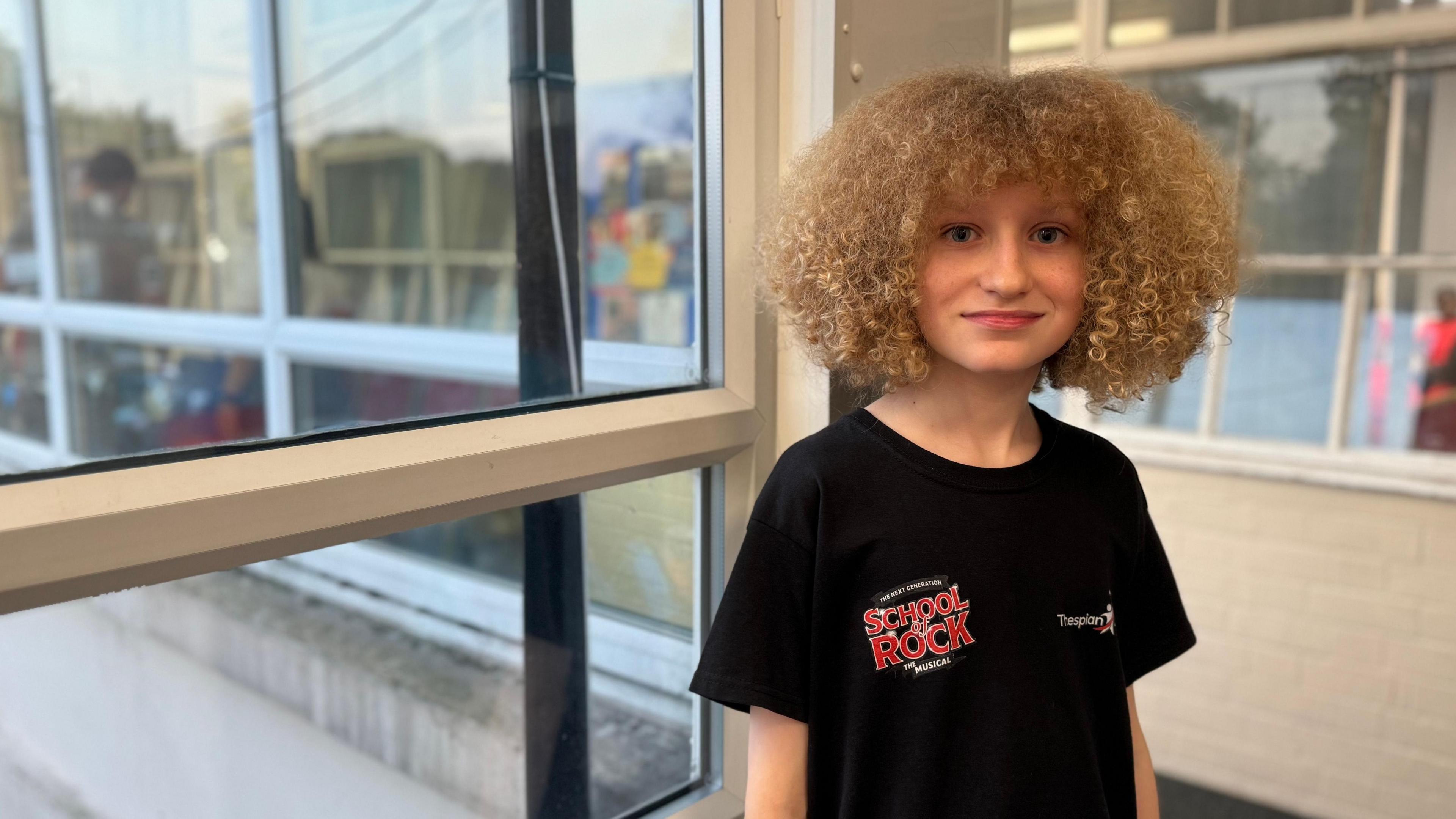
- Published25 March
